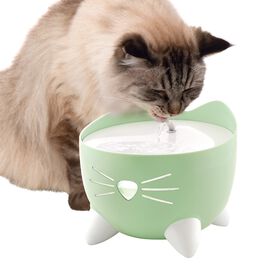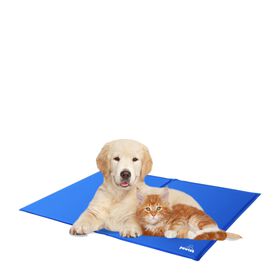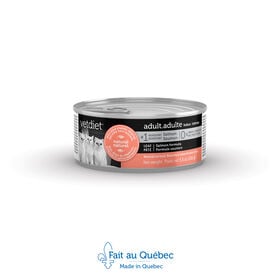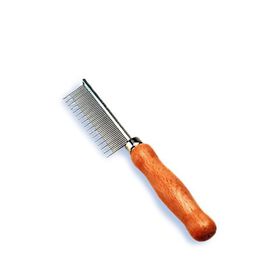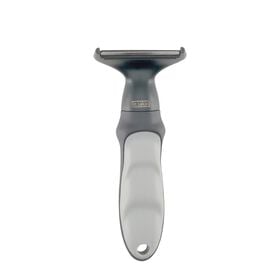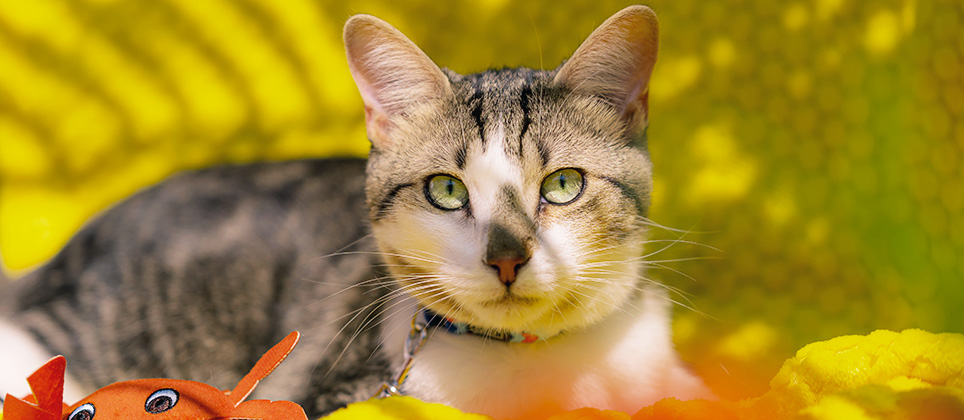
How to help your cat stay cool in the summer heat
Published June 21, 2023.

Karine Gélinas
educhateur.com
Summer heat waves are inevitable. Since domestic felines originally come from a desert environment, you'd think they'd be immune to the harmful effects of heat. However, cats are at risk of developing heatstroke if they are deprived of the means to lower their body temperature.

How do cats manage on hot summer days?
We’ve all seen cats lazily stretched out on the ground or on a window sill, basking in the sun or taking a nap. Cats naturally sleep or at least stay calm during the hottest part of the day. They preserve their energy instead of expending it. That way, their body temperature doesn’t rise as quickly as when they’re active.
When it’s very hot outside, cats look for the coolest surfaces, which is why they can often be found lying in the middle of the kitchen floor, on the ceramic tile in the bathroom, on concrete or in shady areas. They also gradually shift as the surface below them becomes increasingly less comfortable, or the shade moves with the sun throughout the day. Some cats love baths, which diffuse heat more effectively.
Most cats have coats that change with the seasons, and that acclimation to the climate is beneficial. In the summer, they have less of an undercoat and are better adapted to hot weather. Their fur acts as insulation, helping them regulate their internal temperature. Cats sweat mainly through their paws, which is not a very effective way of lowering body temperature. During hot weather, cats lick their coats to cool down. As the saliva evaporates, it releases heat from the body, increasing their comfort.
A cat that is hot is necessarily thirstier, and will drink a lot more than on cooler days. This behaviour is necessary to minimize the harmful effects of the heat. However, cats are not big drinkers by nature, or very effective drinkers for that matter. They get most of their water from their food. In homes where cats are fed dry food, they need their owners to pay particular attention to their water intake.
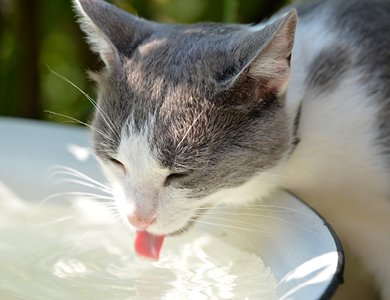
How can I help my cat beat the heat?
The first thing to do is to provide your cat with a number of easily accessible sources of cool water. If your house has several floors, there should be at least one bowl per floor. You can add a few ice cubes to the bowl so that the water stays cooler longer. Pet water fountains are also very effective and appreciated.
The first thing to do is to provide your cat with a number of easily accessible sources of cool water. If your house has several floors, there should be at least one bowl per floor. You can add a few ice cubes to the bowl so that the water stays cooler longer. Pet water fountains are also very effective and appreciated.
You also have to provide your cat with several cool, shady spots.
Here are a few tips:
- Close the curtains in rooms exposed to the sun to keep the heat from coming in.
- Keep the air circulating through the house or in a particular room by strategically placing a fan at ground level to make things more comfortable for your cat.
- Leave a window partially open to create a draft. Ideally, the window should not be exposed to the sun and should have a screen.
- Avoid completely turning off the air conditioning when you’re away. If you want to save energy, turn down the temperature.
- Create a safe ice pack by placing a bottle of water in the freezer the night before. Wrap it in a blanket or pillow case, and place it near one of your cat’s favourite resting spots. Commercial ice packs should be avoided since they contain ingredients that can be potentially toxic for cats.
- Avoid locking a cat in a very sunny or poorly ventilated room.
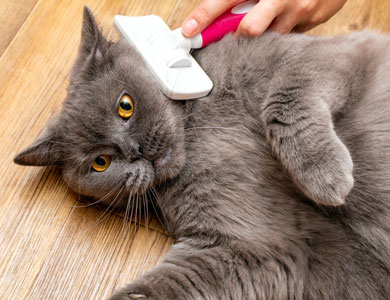
One recommendation that you don’t necessarily think about is brushing your cat. A well-groomed coat provides good insulation against outside heat. Regularly brushing your cat helps remove dead hair, prevents knots from forming and keeps the cat from developing hairballs through self-grooming. Getting cats—even short-haired cats—used to grooming at a young age makes perfect sense.
Since it’s easier to control the inside environment, it’s not recommended that you let your cat out during a heatwave. If it’s impossible to keep the cat indoors, make sure it has fresh water available and several shady spots so that it can stay out of the sun.
Moreover, NEVER leave your cat in a car in the summer, even if you leave the window cracked open. Studies have shown that, on a sunny day when the outside temperature is 22°C, the temperature inside a car parked in the sun with a window cracked open can reach 46°C in one hour. In one particular study, the internal temperature of a car parked in the sun on a nice day when the outside temperature was 26‑27°C was recorded. After 10 minutes, the car’s internal temperature had risen approximately 10 degrees and, after one hour, it had reached 50°C. These and other studies point to the danger of leaving an animal in a car, even for a short period of time.
How can I tell if my cat has heat stroke?
Heat stroke occurs when an animal is no longer able to lower its body temperature to normal on its own. If left untreated, the condition can quickly deteriorate, leading to death. The symptoms of heat stroke in cats are very similar to those in dogs.
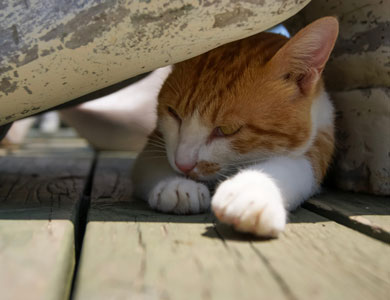
Symptoms to watch for
In random order, they include:
- Panting
- Drooling
- Anxiousness or disorientation
- Weakness
- Dark red or very pale gums or tongue
- Vomiting or diarrhea
- Convulsions
- Coma
- Death
If your cat exhibits one or more of these symptoms during a heatwave, call your veterinarian immediately. The situation may require emergency care in order to bring your cat’s body temperature back to normal.
As with humans, some cats are less tolerant of heat and are therefore at greater risk of developing heat stroke, requiring even greater attention and more regular prevention. They include older or sick cats, kittens or cats with a history of heart or respiratory problems, pregnant and suckling cats, and obese cats. It’s also important to remember that, given their conformation, some breeds have trouble fighting off the heat. Some brachycephalic breeds, such as Persians, often have more difficulty breathing or panting, and therefore suffer more from the heat.
Protecting your cat from the heat and its harmful effects should be part of your responsibilities during the summer. Just remember that, if you’re bothered by hot weather, your cat probably is, too.
